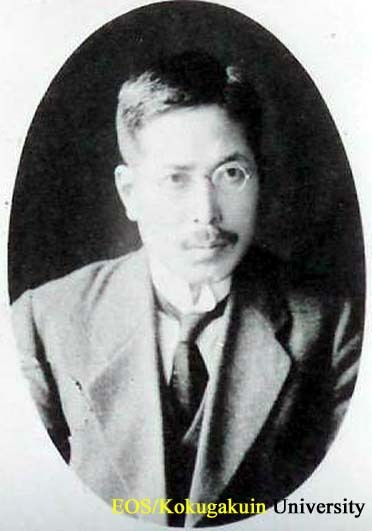- トップ
- Encyclopedia of Shinto
- Honaga Mosuke
Encyclopedia of Shinto
| Main Menu: | |
| Links: |
詳細表示 (Complete Article)
| カテゴリー1: | 8. Schools, Groups, and Personalities |
|---|---|
| カテゴリー2: | Personalities |
| Title | Honaga Mosuke |
| Text | (1881-1932) A Shinto scholar (D.Lit) active in the late Meiji and early Showa eras. Born June 20, 1881, in the village of Ōsaki in Atsumi District, Aichi Prefecture, as the eldest son of Honaga Tokushirō and mother Matsu. After graduating from the First Higher School, Honaga entered Tokyo Imperial University (now the University of Tokyo) in 1903, where he studied philosophy in the College of Liberal Arts. After graduating in 1906, he entered Imperial University's Graduate School, graduating in 1911. While a university student, Honaga received guidance from Inoue Tetsujirō. Between November 1913 and October 1917, Honaga studied abroad in Germany at Jena, and in England at London, Oxford, and Brighton, as well as at other universities. Upon his return to Japan, he undertook research on Japanese intellectual history and Shinto. Honaga was appointed as a professor at Tokyo Women's Higher Normal School in 1921, while holding adjunct posts as lecturer at Tokyo University of Literature and Science (Tokyo Bunrika Daigaku, now incorporated into the University of Tsukuba) and Kokugakuin University, as well as being appointed first principal of the Higher School of Commerce (Shūtoku Shōgyō Gakkō). He later took a post as professor at Nihon University, where he lectured on Shinto. Honaga was active in administering such academic societies as the Shidō Konwakai (Humanities Colloquium), Shintō Gakkai (Academic Association of Shinto Scholars), and Shintō Shōrei Gakkai (Society for the Promotion of Shinto). His approach to Shinto studies emphasized the perspectives theology and the philosophy of religion, and by introducing Western research on Shinto to Japan, worked to elucidate differences between Western and Japanese concept of religion, among other research contributions. Honaga died October 21, 1932, at the age of fifty-two. He was the author of Nihon shisō no kenkyū (Research on Japanese Thought), Nihon rinri shisō no keitō (System of the Japanese Philosophy of Ethics), Ōbeijin no Shintōkan (Westerners' Perception of Shinto), and Amaterasu ōmikami no shingakuteki kenkyū (Theological Research on the Sun Goddess Amaterasu, published posthumously), among other works. - Sakurai Haruo |




